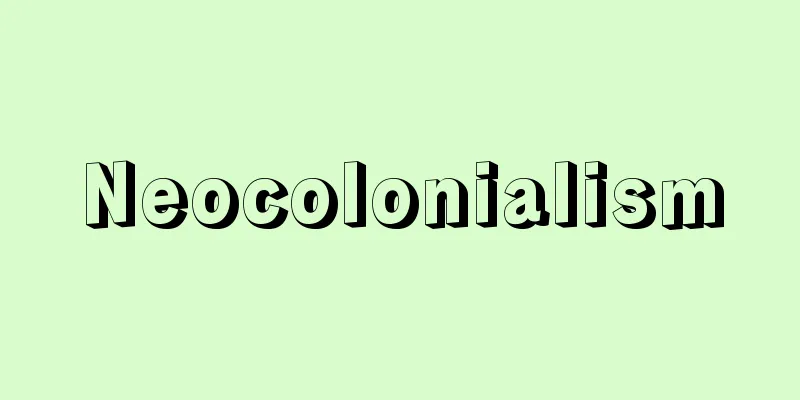Indirect reasoning - indirect reasoning

|
In traditional logic, a method of reasoning that takes two or more judgments as premise, considers their interrelationships, and arrives at a conclusion. Examples include syllogisms and inductive reasoning. Rational reasoning. Source: The Selected Edition of the Japanese Language Dictionary About the Selected Edition of the Japanese Language Dictionary Information |
|
〘名〙 伝統的論理学で、二個またはそれ以上の判断を前提とし、それらの相互関係を考察して、結論を導き出す推理。三段論法、帰納的推理などがこれに含まれる。理性推理。
出典 精選版 日本国語大辞典精選版 日本国語大辞典について 情報 |
>>: Indirect leveling - indirect leveling
Recommend
Amylodextrin
This refers to the dextrin produced by the hydroly...
Renjishi - Lion Dance
Kabuki dance. Nagauta. Written by Kawatake Mokuam...
Collection lawsuit - toritatesosho
In a compulsory execution procedure for a monetary...
Horse opera
The other type of western was the Bronco Billy se...
Cheng Chang Geng - Teichoukou
A Peking opera actor from the Qing Dynasty in Chi...
National Institute of Radiological Sciences
A research institute established in July 1957 as a...
Minutes -
〘noun〙 (often used with numerals) [一] To divide a ...
Bradypus tridactylus
...General term for arboreal, herbivorous mammals...
Meprobamate
The generic name of 2-methyl-2-propyl-1,3-propane...
Kusunokiryu Hanaminomakubari - Kusunokiryu Hanaminomakubari
Kabuki kyogen. Historical piece. 7 acts. Written b...
Ostracon (English spelling)
A piece of pottery or limestone used by the ancien...
Gansoku - Gansoku
…The sporophylls mature in autumn and turn brown ...
Mount Komaki
<br /> The remains of a castle in Horiuchi, ...
Tachycardia
A pulse rate of 100 or more beats per minute is c...
Kaicha - Tea
〘Noun〙 A way to taste tea in the tea ceremony. Dri...
![Panay [island] - Panay](/upload/images/67cc8a3f6cd94.webp)








